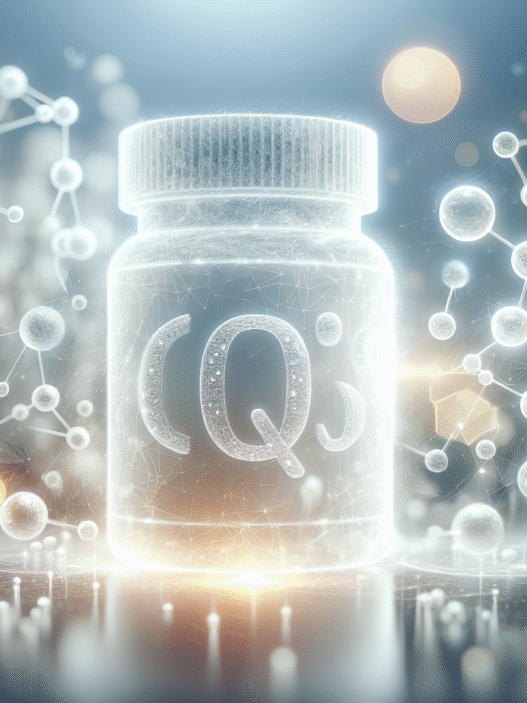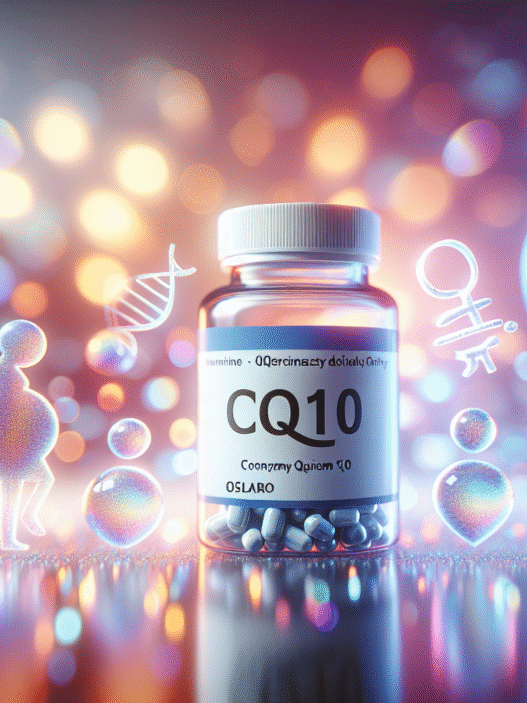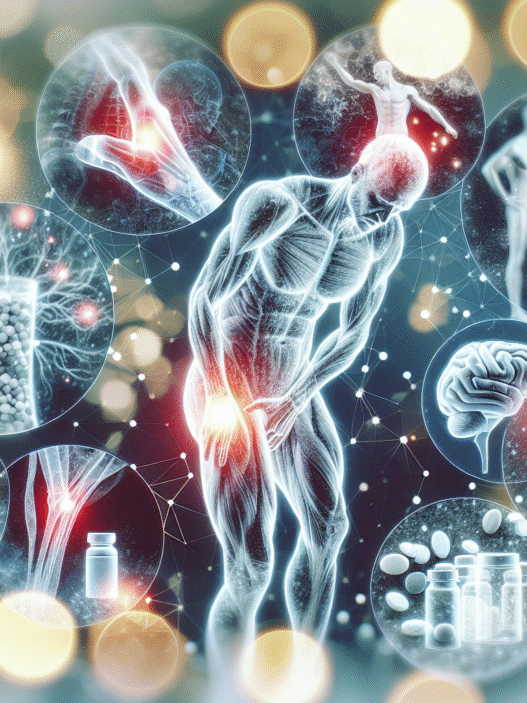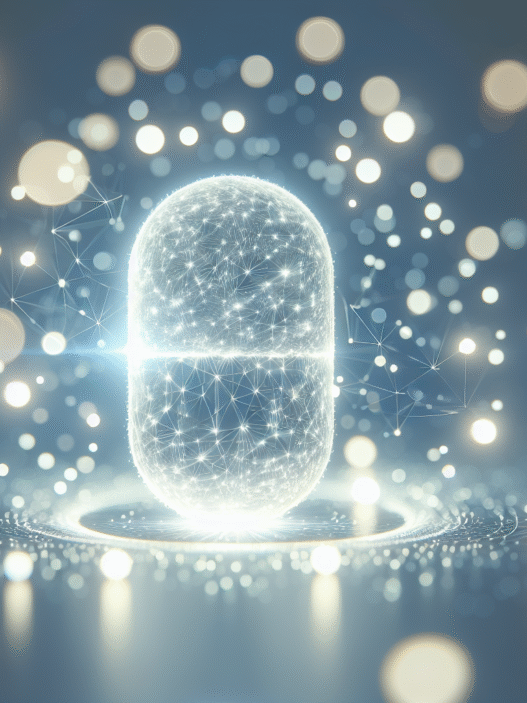The Role of CoQ10 in Cell Energy
Generating ATP
Coenzyme Q10 (CoQ10) helps generate energy in cells by making the antioxidant adenosine triphosphate (ATP), which is involved in cell energy transfer. It also serves as an antioxidant, protecting cells against oxidative stress. In simpler terms, ATP acts as the energy currency for cells, allowing them to perform their functions efficiently.
CoQ10 is ubiquitous throughout the body and is particularly concentrated in organs with high energy demands, such as the heart, liver, and kidneys. As people age, their levels of CoQ10 may decrease, affecting energy production and cellular function. This decline is one factor contributing to aging and reduced vitality. For more details on how CoQ10 influences mitochondrial health, visit our page on coq10 and mitochondrial function.
| Function | Description |
|---|---|
| ATP Production | Provides energy for cellular activities |
| Antioxidant Protection | Neutralizes free radicals and oxidative stress |
Antioxidant Protection
CoQ10 also acts as a powerful antioxidant, defending cells from damage caused by free radicals and oxidative stress. Free radicals are unstable molecules that can damage cellular components, leading to aging and various diseases. Antioxidants like CoQ10 help maintain cellular health by neutralizing these harmful molecules.
The aging process involves a decrease in mitochondrial function and a diminished antioxidant defense, leading to an increase in reactive oxygen species (ROS) production. This can contribute to oxidative damage, which in turn can accelerate the aging process. Learn more about how CoQ10 helps in skin health by reducing oxidative stress on our coq10 for skin health page.
| Benefit | Action |
|---|---|
| Neutralization of Free Radicals | Reduces oxidative stress in cells |
| Support for Mitochondrial Function | Helps maintain energy production |
CoQ10’s dual role in generating ATP and providing antioxidant protection makes it essential for maintaining cellular energy and protecting against age-related damage. It explains why incorporating CoQ10 supplements or increasing dietary intake can be beneficial for individuals concerned with aging and vitality. For more on how CoQ10 supplements can benefit your health, see our guide on the best coq10 supplements.
Health Implications of Low CoQ10
Understanding the health implications of low CoQ10 levels is essential, especially for adults aged 35 to 65 who are concerned with aging and vitality. CoQ10 plays a crucial role in cell energy production and antioxidant protection. This section explores the connection between low CoQ10 levels and various diseases, as well as the need for further research.
Link to Diseases
Low levels of CoQ10 are associated with several health issues. CoQ10 deficiency has been linked to conditions such as cancer, type 2 diabetes, and neurodegenerative disorders. The relationship between CoQ10 deficiency and these diseases is complex and multifactorial (Healthline):
- Cancer: Reduced CoQ10 levels have been observed in patients with certain types of cancer. CoQ10’s role as an antioxidant may help protect cells from oxidative damage, potentially reducing cancer risk.
- Type 2 Diabetes: CoQ10 is involved in energy production and glucose metabolism. Low levels may impair these processes, contributing to the development of type 2 diabetes.
- Neurodegenerative Disorders: Conditions like Parkinson’s and Alzheimer’s diseases have been linked to oxidative stress. CoQ10’s antioxidant properties may help in managing or slowing the progression of these disorders.
Need for Further Research
Although there is evidence linking low CoQ10 levels to various diseases, more research is needed to fully understand these relationships. Current studies show promise, but they also highlight the complexity of CoQ10’s role in the body. Many factors, including genetics, lifestyle, and overall health, can influence CoQ10 levels and their impact on disease.
Further research is necessary to determine the efficacy of CoQ10 supplementation in preventing or managing these conditions. This includes exploring optimal dosage levels for different health outcomes. For example, a study showed that older adults could benefit from taking 100 to 200 mg of CoQ10 per day to improve muscle strength and vitality (Healthline).
Efforts to better understand CoQ10’s potential benefits can lead to more targeted and effective treatments for diseases associated with aging and vitality. For more information, explore our articles on coq10 and mitochondrial function, coq10 and cellular health, and coq10 and antioxidant benefits.
Benefits of CoQ10 for Heart Health
Coenzyme Q10 (CoQ10) has garnered significant attention for its potential benefits in cardiovascular health. Its role in coq10 anti-aging properties extends beyond just skin benefits; it also significantly impacts heart health, especially for individuals over 35.
Improving Heart Failure Treatment
CoQ10 has shown promise in improving treatment outcomes for heart failure patients. One of the primary ways CoQ10 benefits these individuals is by helping to restore optimal energy production levels in heart cells. CoQ10’s role in the mitochondrial function helps in reducing oxidative damage and improving overall cardiac health.
Studies have indicated that CoQ10 supplementation can reduce hospital stays for heart failure patients. According to the 2022 ACC/AHA/HFSA guidelines, CoQ10 effectively reduced vascular mortality, all-cause mortality, and hospital readmissions for heart failure over a 2-year period (NCBI Bookshelf).
| Benefit | Percentage Reduction |
|---|---|
| Vascular Mortality | 50% |
| All-Cause Mortality | 42% |
| Hospital Readmissions | 37% |
For individuals seeking more information on CoQ10 supplements, visit our article on the best CoQ10 supplements.
Reducing Heart Disease Risk
Another significant benefit of CoQ10 is its potential to lower the risk of heart disease. CoQ10 helps in reducing LDL cholesterol levels and alleviating symptoms associated with angina, such as chest pain. The antioxidant properties of CoQ10 help reduce the production of reactive oxygen species (ROS), thereby minimizing oxidative stress and supporting cardiovascular health.
Regular supplementation with CoQ10 has been linked to lower all-cause mortality among heart disease patients. It is recommended that individuals at risk or suffering from heart disease consume up to 200 mg of CoQ10 per day to achieve these benefits (WebMD).
A table detailing dose recommendations can be found below:
| Health Condition | Recommended Dosage (mg/day) |
|---|---|
| Heart Disease Risk Reduction | 100–200 |
| Angina Pain Relief | 150–300 |
| Heart Failure Management | 200 |
For more information on the importance of CoQ10 in heart health and how to integrate it into your daily regimen, consider reading our full article on coq10 and heart health.
Not only does CoQ10 help in maintaining heart health, but its antioxidant benefits also support overall wellbeing, making it a vital component in anti-aging efforts, especially for adults aged 35 and above.
CoQ10 and Fertility
CoQ10 plays a significant role in cellular energy production and antioxidant protection, making it important in the context of fertility for both men and women. This section delves into how CoQ10 affects female and male fertility, showcasing its potential benefits for those trying to conceive.
Effects on Female Fertility
CoQ10 is crucial for maintaining egg quality and quantity in women. As women age, the natural levels of CoQ10 in their bodies decrease, impacting egg viability. Supplementing with CoQ10 may help combat this decline by enhancing mitochondrial function and energy production in the ovaries.
| Parameter | Description |
|---|---|
| Egg Quality | CoQ10 helps maintain the quality of eggs by reducing oxidative stress. |
| Egg Quantity | Supplementation can support the preservation of egg quantity, crucial as women age. |
| Recommended Dosage | Typically 100-200 mg per day, although individual needs may vary. |
By taking CoQ10 supplements, women may experience improved outcomes in fertility treatments. For example, in vitro fertilization (IVF) outcomes may be positively influenced by the addition of CoQ10 to the treatment regimen. For more information on effective supplements, explore our guide on the best coq10 supplements.
Effects on Male Fertility
Men also benefit from CoQ10 supplementation. It plays a role in enhancing sperm motility and concentration. Oxidative stress adversely impacts sperm health, and CoQ10’s antioxidant properties help mitigate these effects.
Research indicates that CoQ10 supplementation can lead to:
- Increased sperm count
- Improved sperm motility
- Enhanced overall sperm function
| Parameter | Description |
|---|---|
| Sperm Count | CoQ10 helps increase the number of sperm, which is crucial for fertility. |
| Sperm Motility | The antioxidant properties of CoQ10 improve the movement of sperm, a key factor in successful fertilization. |
| Recommended Dosage | Generally 100-300 mg per day, depending on individual needs and medical advice. |
For both men and women, CoQ10 serves as a vital component in enhancing reproductive health. Its ability to improve energy production and combat oxidative stress makes it an essential supplement for those concerned with aging and vitality. For more insights into the various benefits CoQ10 brings to health, check out our article on coq10 and heart health.
CoQ10 for Skin Health
Coenzyme Q10 (CoQ10) plays a vital role in maintaining youthful and vibrant skin. Here, we delve into how CoQ10 combats skin aging by defending against UV damage and providing anti-aging benefits.
Defense Against UV Damage
CoQ10 applied directly to the skin helps reduce oxidative damage caused by ultraviolet (UV) rays. This oxidative damage can lead to premature aging and the formation of wrinkles (Healthline). Notably, CoQ10’s antioxidant properties protect the skin by neutralizing free radicals, which are harmful molecules generated by UV exposure.
In ex vivo and in vivo studies, the topical application of CoQ10 increased CoQ10 levels on both the skin’s surface and deeper layers, which significantly reduced the depth of wrinkles, a sign commonly associated with aging. Enhanced levels of CoQ10 in the skin result in a stronger defense against environmental damage, making it essential for maintaining skin health.
Anti-aging Skin Benefits
Beyond its protective properties, CoQ10 offers numerous anti-aging benefits. Topical skincare products containing CoQ10 can help replenish this vital nutrient, reversing signs of aging by supporting and repairing skin damage (NCBI PMC). Some of the key anti-aging benefits of CoQ10 for the skin include:
- Reduction in Wrinkle Depth: Clinically, CoQ10 has been shown to decrease the depth of cutaneous wrinkles.
- Improved Skin Elasticity: CoQ10 enhances skin elasticity, leading to smoother and firmer skin texture.
- Increased Skin Moisturization: CoQ10 helps maintain skin hydration, contributing to a more youthful appearance.
- Enhanced Antioxidative Status: The antioxidative properties of CoQ10 reduce ultra-weak photon emission, a measure of oxidative stress on the skin (JCAD).
For more on the benefits of CoQ10 in skincare, visit coq10 benefits for skin.
| Benefits | Description |
|---|---|
| Wrinkle Reduction | Decreases the depth of wrinkles |
| Skin Elasticity | Enhances smoothness and firmness |
| Skin Moisturization | Improves hydration levels |
| Antioxidant Status | Reduces oxidative stress and protects against environmental damage |
Given its myriad benefits, CoQ10 is crucial for an effective anti-aging skincare regimen. For insights into coq10 skin care products that you might consider including in your routine, explore our comprehensive guide.
CoQ10’s role in skin health complements its other benefits, such as improved heart health and enhanced cellular function, making it an essential nutrient for those concerned with aging and vitality. For detailed dosage recommendations, see our article on coq10 dosage for anti-aging.
Sources and Dosage of CoQ10
Understanding the sources of CoQ10 and the recommended dosage levels is crucial for maximizing its anti-aging properties. This section provides insights into CoQ10-rich foods as well as appropriate dosage recommendations.
CoQ10-Rich Foods
Regular consumption of CoQ10-rich foods can help maintain adequate levels of CoQ10 in the body. These foods include:
- Organ meats (heart, liver, kidney)
- Fatty fish (salmon, tuna, sardines)
- Meat (beef, pork, chicken)
- Soybeans
- Vegetables (spinach, cauliflower, broccoli)
- Nuts and seeds
Incorporating these natural sources of CoQ10 into the diet can support the body’s overall health and mitochondrial function.
Recommended Dosage Levels
The recommended CoQ10 dosage varies depending on the individual’s age, health condition, and specific needs. Here is a breakdown of the dosage guidelines based on different requirements:
| Health Condition | Recommended Dosage (mg/day) |
|---|---|
| General Anti-Aging | 100 – 200 |
| Specific Anti-Aging Needs | Up to 300 |
| Heart Disease | Up to 200 |
| Individuals Taking Statins | 100 – 200 |
| Specific Medical Conditions | Up to 1,200 |
Figures courtesy WebMD and Healthline.
To counteract age-related depletion of CoQ10, a daily intake of 100 to 200 mg is often recommended (Healthline). Higher dosages (up to 1,200 mg) might be required in certain medical cases.
For more insights on CoQ10 dosage levels and the best supplements available, refer to our section on coq10 dosage for anti-aging and best coq10 supplements.
For those interested in learning more about natural sources of CoQ10 and their benefits, visit our article on natural sources of coq10. Additionally, exploring the coq10 benefits for skin and coq10 skin care products can provide further information on how CoQ10 can enhance skin health and appearance.





















